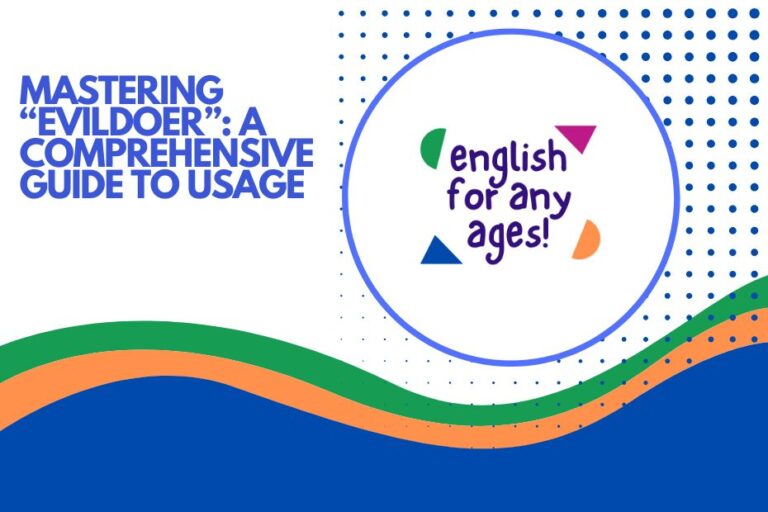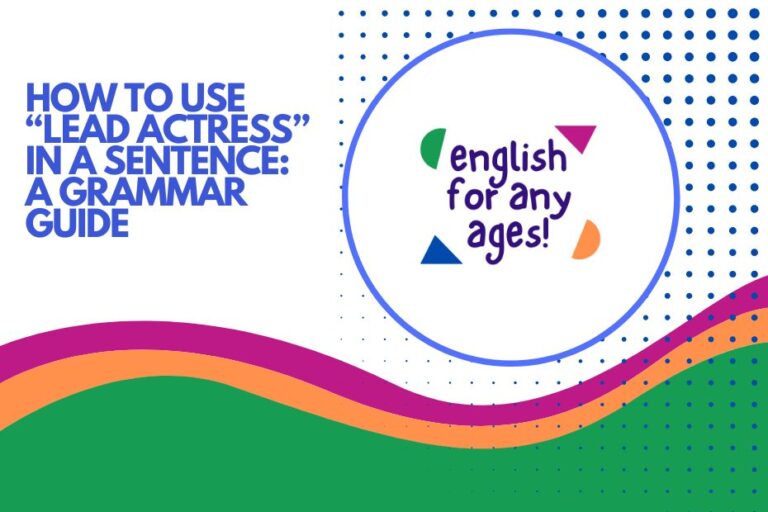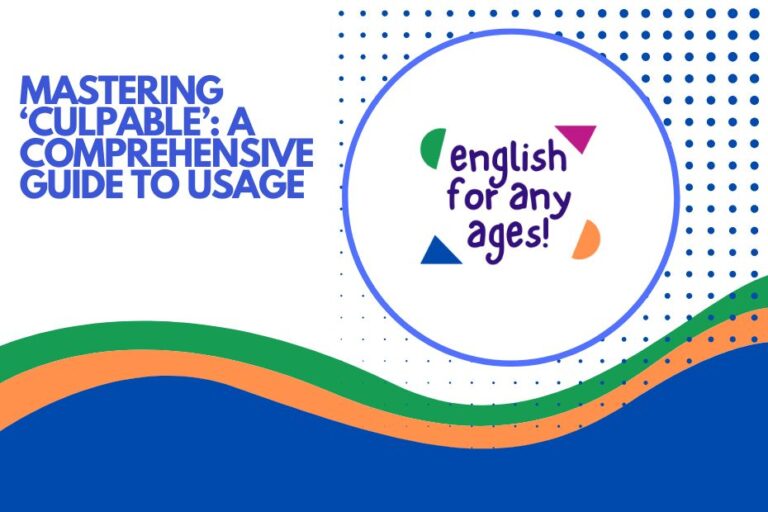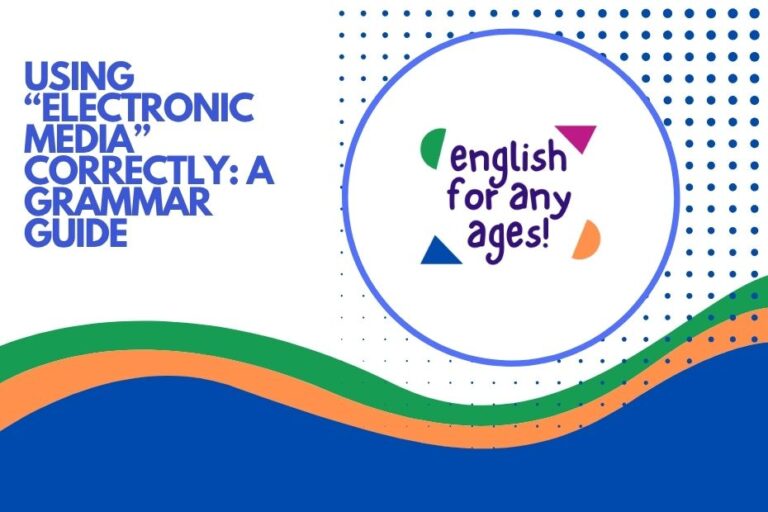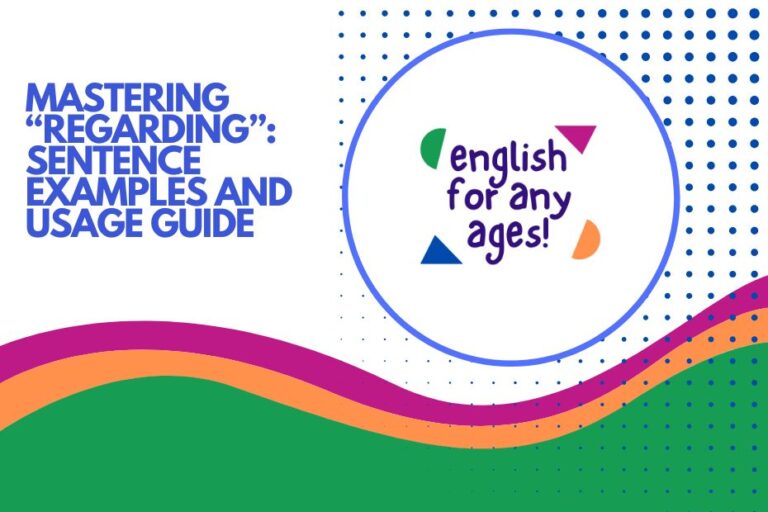Other Ways to Say “Hope to See You Soon”: A Comprehensive Guide
Expressing anticipation for a future meeting is a common and important part of communication. While “Hope to see you soon” is perfectly acceptable, varying your language can make your conversations more engaging and demonstrate a wider command of English.
This article explores a multitude of alternative phrases, examining their nuances, contexts, and grammatical structures. Whether you’re writing a formal email or chatting with a friend, this guide will provide you with the tools to express your desire for a future meeting in a more sophisticated and personalized way.
This article is designed for English language learners of all levels, from beginners seeking basic alternatives to advanced learners aiming to refine their conversational skills and writing style.
Table of Contents
- Introduction
- Definition and Context
- Structural Breakdown
- Categories of Alternatives
- Examples
- Usage Rules
- Common Mistakes
- Practice Exercises
- Advanced Topics
- FAQ
- Conclusion
Definition and Context
The phrase “Hope to see you soon” expresses a desire or expectation of meeting someone again in the near future. It’s a polite and friendly way to end a conversation or a written communication.
Its function is primarily social, aimed at maintaining relationships and indicating a willingness to continue the interaction.
The phrase is generally appropriate in both formal and informal contexts, though the degree of formality can be adjusted by choosing alternative phrases. For example, in a professional email, “I look forward to our next meeting” might be more suitable, while “Catch you later!” is better reserved for casual conversations with friends.
The “hope” in the phrase implies a degree of uncertainty; it acknowledges that the meeting is not guaranteed but expresses a positive expectation. The “soon” adds a sense of immediacy, suggesting that the speaker anticipates the meeting will occur in the relatively near future.
Structural Breakdown
The basic structure of “Hope to see you soon” is relatively simple:
- Hope: This is the verb, expressing the speaker’s wish or desire. It’s in the present tense, indicating a current state of mind.
- To see: This is an infinitive phrase, acting as the object of the verb “hope.” It specifies what the speaker hopes for – the act of seeing the other person.
- You: This is the object of the infinitive verb “see,” identifying the person the speaker hopes to see.
- Soon: This is an adverb, modifying the infinitive phrase “to see you” and indicating the timeframe within which the speaker hopes the meeting will occur.
Variations on this structure involve replacing one or more of these elements with synonyms or alternative phrases. For example, “Look forward to seeing you soon” replaces “hope” with “look forward to,” while maintaining the same overall meaning.
Other variations might replace “soon” with a more specific timeframe, such as “next week” or “at the conference.” The core structure, however, remains consistent: an expression of desire followed by a specification of the desired event and its timing.
Categories of Alternatives
Alternatives to “Hope to see you soon” can be broadly categorized into several groups based on their level of formality, emphasis, and specific meaning:
Formal Alternatives
These phrases are suitable for professional emails, business correspondence, and interactions with superiors or clients. They often emphasize anticipation and respect.
Informal Alternatives
These phrases are appropriate for casual conversations with friends, family, and close colleagues. They tend to be more relaxed and friendly.
Alternatives Emphasizing Anticipation
These phrases highlight the speaker’s excitement and eagerness for the future meeting.
Alternatives Specifying Time
These phrases provide a more specific timeframe for the anticipated meeting.
Alternatives Focusing on Future Interaction
These phrases broaden the scope beyond just seeing the person, suggesting other forms of interaction or collaboration.
Examples
Here are several tables with examples of different ways to say “Hope to see you soon,” categorized by formality and emphasis. Each table includes a variety of options, along with context notes to help you choose the most appropriate phrase for different situations.
Table 1: Formal Alternatives
This table presents formal alternatives suitable for professional settings, emphasizing respect and anticipation. Each example is followed by a brief explanation of its appropriate usage.
| Alternative Phrase | Context and Usage |
|---|---|
| I look forward to our next meeting. | Standard in business correspondence; expresses anticipation for a scheduled meeting. |
| I anticipate seeing you again soon. | Slightly more formal than “hope”; suitable for professional emails. |
| It was a pleasure meeting you, and I hope to connect again in the future. | Suitable after a first meeting; emphasizes the desire for continued interaction. |
| I trust we will have the opportunity to meet again shortly. | Formal and polite; indicates confidence in a future meeting. |
| Thank you for your time. I look forward to future collaboration. | Appropriate after a meeting discussing potential collaboration. |
| I eagerly await our next discussion. | Stronger emphasis on anticipation; suitable when you are particularly interested in continuing the conversation. |
| We appreciate your visit and hope to welcome you back soon. | Often used by businesses to thank customers or clients for their visit. |
| I am hopeful that we can schedule another meeting in the near future. | Expresses hope in a more formal and slightly less direct way. |
| I look forward to continuing our conversation at your earliest convenience. | Politely allows the other person to set the timing for the next meeting. |
| I am very thankful for the opportunity to meet you. I hope we meet again soon. | Expresses gratitude and hope for a future meeting. |
| I am looking forward to your visit next month. | Used when you know they will visit you next month. |
| Have a good day and hope to see you soon. | A polite and professional way to end a conversation. |
| Looking forward to our next meeting. | A short and professional way to end a conversation. |
| I hope to work with you again soon. | Suitable after finishing a project and hoping to collaborate again. |
| We are looking forward to your next order. | A business-related phrase used to encourage a customer to make a purchase. |
| I hope to hear from you again soon. | Suitable for ending a professional email. |
| I look forward to the next time we speak. | A professional phrase suitable for the workplace. |
| I look forward to seeing you soon. | A professional way to end a conversation. |
| Thank you for your time, I hope to see you soon. | A polite and professional way to end a meeting. |
| I look forward to seeing you at the upcoming event. | Used when you both plan to attend the same event. |
Table 2: Informal Alternatives
This table provides informal alternatives suitable for conversations with friends, family, and close colleagues. These phrases are more relaxed and friendly.
| Alternative Phrase | Context and Usage |
|---|---|
| See you soon! | A simple and common way to say goodbye, implying a future meeting. |
| Catch you later! | Very informal; used among close friends. |
| Talk to you soon! | Implies a future phone call or online communication. |
| Hope to catch up soon! | Suggests a more in-depth conversation or meeting. |
| Looking forward to seeing you! | Enthusiastic and friendly. |
| Can’t wait to see you again! | Expresses strong anticipation. |
| It was great seeing you! Let’s do it again soon. | Expresses enjoyment of the meeting and suggests a repeat. |
| Later! | Extremely informal and casual. |
| Cheers! See you around. | British English; “cheers” is used as a goodbye. |
| Alright, see you soon. | Common in British English. |
| Have a good one, see you soon! | A friendly way to end a conversation. |
| Take care, hope to see you soon. | A caring and friendly way to say goodbye. |
| It was great seeing you, hope to see you soon. | Expresses enjoyment of the meeting. |
| I’ll see you around! | Suggests a casual and unplanned future meeting. |
| See ya! | A very informal and shortened version of “see you.” |
| Until next time! | Implies a recurring meeting or event. |
| Keep in touch, hope to see you soon! | Encourages continued communication. |
| All the best, see you soon! | A friendly and supportive way to say goodbye. |
| Have a good one! | A casual and friendly way to end a conversation. |
| Stay in touch! | Similar to “Keep in touch, hope to see you soon!” |
| Good seeing you! | A casual and friendly way to say goodbye. |
| Looking forward to hanging out again! | Informal and friendly, suggests a casual get-together. |
| See you later, alligator! | A playful and very informal way to say goodbye. |
Table 3: Alternatives Emphasizing Anticipation
This table features phrases that emphasize the speaker’s excitement and eagerness for the future meeting. These are ideal when you want to convey genuine enthusiasm.
| Alternative Phrase | Context and Usage |
|---|---|
| I’m really looking forward to seeing you again. | Emphasizes strong anticipation. |
| I can’t wait to see you! | Expresses extreme excitement. |
| I’m excited to see you soon. | A more direct expression of excitement. |
| The time can’t come soon enough! | Playful and emphasizes eagerness. |
| Counting down the days until I see you again! | Expresses a strong desire for the meeting to happen quickly. |
| I’m eagerly anticipating our next meeting. | Formal, yet emphasizes anticipation. |
| Looking forward to it! | Short, informal, and enthusiastic. |
| I’m already looking forward to our next visit. | Expresses anticipation even before leaving. |
| I’m so excited to see you again soon! | Intensifies the expression of excitement. |
| Anticipating our next get-together! | Informal and emphasizes excitement for a casual meeting. |
| It’ll be great to see you again! | Expresses positive anticipation. |
| I’m thrilled to see you again soon! | Very enthusiastic and joyful. |
| I’m keen to see you again soon! | British English; expresses strong desire. |
| Looking forward to it immensely! | Emphasizes great anticipation. |
| I’m absolutely buzzing to see you again! | Very informal and expresses high excitement. |
| I’m dying to see you again! | Hyperbolic expression of strong desire. |
| Can’t wait to catch up! | Emphasizes anticipation for a conversation. |
| I’m on tenterhooks to see you again! | Expresses anxious anticipation. |
| Eagerly awaiting our next meetup! | Enthusiastic and informal. |
| I’m chomping at the bit to see you again! | Idiomatic expression of strong impatience and eagerness. |
Table 4: Alternatives Specifying Time
This table includes phrases that provide a more specific timeframe for the anticipated meeting. These are useful when you have a concrete date or event in mind.
| Alternative Phrase | Context and Usage |
|---|---|
| See you next week! | Specific timeframe; implies a meeting within the next week. |
| See you on Tuesday! | Even more specific; indicates a meeting on a particular day. |
| See you at the conference! | Refers to a specific event where the meeting will occur. |
| See you in a few days! | Less precise, but still indicates a relatively short timeframe. |
| See you next month! | Indicates a meeting within the next month. |
| See you this weekend! | Refers to the upcoming weekend. |
| See you soon at the party! | Specifies both the timeframe and the event. |
| Until our next appointment! | Used in professional settings when a follow-up appointment is scheduled. |
| See you at the game on Friday! | Very specific regarding the event and day. |
| See you when I’m back in town! | Indicates the meeting will occur upon the speaker’s return. |
| See you in the New Year! | Used around the end of the year. |
| See you at the reunion! | Refers to a specific reunion event. |
| See you when you’re free! | Allows the other person to determine the timing. |
| See you during the holidays! | Refers to a general holiday period. |
| See you after your vacation! | Indicates the meeting will occur after the other person’s vacation. |
| See you in the spring! | Refers to a specific season. |
| See you at the concert next Saturday! | Very specific regarding event and date. |
| See you at our usual spot next Friday! | Refers to a recurring meeting place and time. |
| See you at the exhibition! | Refers to a specific exhibition event. |
| See you at the wedding! | Refers to a specific wedding event. |
Table 5: Alternatives Focusing on Future Interaction
This table provides phrases that broaden the scope beyond just seeing the person, suggesting other forms of interaction or collaboration. These are useful when you want to emphasize continued communication or teamwork.
| Alternative Phrase | Context and Usage |
|---|---|
| Looking forward to working with you again. | Suitable after completing a project or collaboration. |
| Hope to hear from you soon. | Implies a desire for continued communication via email or phone. |
| Let’s keep in touch! | Encourages continued communication. |
| Looking forward to our next project together. | Specific to collaborative work. |
| Hope to collaborate again in the future. | Expresses a desire for future teamwork. |
| Looking forward to your feedback. | Used when expecting input or review from the other person. |
| Hope to continue this conversation soon. | Suggests a desire to continue a specific discussion. |
| Looking forward to your presentation. | Used when anticipating a presentation by the other person. |
| Hope to see your work in the future. | Expresses interest in the other person’s professional output. |
| Looking forward to your next email. | Implies anticipation for further communication. |
| Hope to talk to you on the phone soon. | Specific to phone communication. |
| Looking forward to connecting with you on LinkedIn. | Refers to professional networking. |
| Hope to see you at the next networking event. | Refers to future networking opportunities. |
| Looking forward to your next post. | Used when following someone’s blog or social media. |
| Hope to read more of your articles soon. | Expresses interest in the other person’s writing. |
| Looking forward to your next performance. | Used when anticipating a performance by the other person. |
| Hope to see you at the summit next year. | Refers to an annual summit event. |
| Looking forward to seeing you present your findings. | Used when anticipating a research presentation. |
| Hope to hear more about your research soon. | Expresses interest in the other person’s research progress. |
| Looking forward to exchanging ideas with you again soon. | Suggests a desire for further intellectual exchange. |
Usage Rules
Choosing the right alternative to “Hope to see you soon” depends on several factors, including the context, your relationship with the person, and the specific message you want to convey. Here are some general usage rules:
- Formality: Always consider the level of formality appropriate for the situation. Use formal alternatives in professional settings and informal alternatives in casual conversations.
- Specificity: If you have a specific timeframe or event in mind, use alternatives that include that information.
- Emphasis: Choose alternatives that emphasize the aspect you want to highlight, such as anticipation, collaboration, or continued communication.
- Authenticity: Use phrases that genuinely reflect your feelings and intentions. Avoid using overly formal language if it feels unnatural.
- Audience: Tailor your language to your audience. Consider their age, background, and relationship to you.
Exceptions: While these rules provide general guidance, there are always exceptions. For example, you might use a slightly more formal phrase with a close colleague if you want to emphasize the importance of a particular meeting. Or, you might use a very informal phrase with a client if you have a very close and established relationship.
Common Mistakes
Here are some common mistakes to avoid when using alternatives to “Hope to see you soon”:
| Incorrect | Correct | Explanation |
|---|---|---|
| I am hoping to see you soon. | I hope to see you soon. | “Hoping” is grammatically correct but less concise and less common in this context. |
| Looking forward to see you soon. | Looking forward to seeing you soon. | “See” should be “seeing” after “looking forward to” because it requires a gerund. |
| I wait you soon. | I look forward to seeing you soon. | “Wait you” is not a correct English phrase. |
| See you soonly. | See you soon. | “Soonly” is not a word in English. |
| I anticipation our meeting. | I anticipate our meeting. | “Anticipation” is a noun; “anticipate” is the verb. |
| I am exciting to see you. | I am excited to see you. | “Exciting” describes something that causes excitement; “excited” describes how someone feels. |
| Catch you after! | Catch you later! | The correct idiom is “later,” not “after.” |
| See you in the another day. | See you another day. | The correct phrase is “another day,” without “the.” |
| Hope to see you at the sometimes. | Hope to see you sometime. | The correct word is “sometime,” meaning at an unspecified time. |
| I’m looking forward for see you. | I’m looking forward to seeing you. | The correct preposition is “to,” and the verb must be in gerund form. |
Practice Exercises
Test your understanding with these practice exercises. Choose the most appropriate alternative to “Hope to see you soon” for each scenario.
Exercise 1: Choosing the Right Level of Formality
Select the most appropriate phrase for each scenario, choosing between formal, informal, and neutral options.
| Scenario | Options | Correct Answer |
|---|---|---|
| Ending an email to your boss after a successful project. | A) See you later! B) I look forward to future collaboration. C) Catch you soon! | B) I look forward to future collaboration. |
| Saying goodbye to a close friend after a coffee date. | A) I anticipate seeing you again shortly. B) See you soon! C) I trust we will meet again shortly. | B) See you soon! |
| Concluding a meeting with a potential new client. | A) See ya! B) I hope to connect again in the future. C) Later! | B) I hope to connect again in the future. |
| Ending a casual phone call with your sibling. | A) Talk to you soon! B) I eagerly await our next discussion. C) I am looking forward to your visit next month. | A) Talk to you soon! |
| Finishing a formal letter to a business partner. | A) Cheers! See you around. B) I am very thankful for the opportunity to meet you. I hope we meet again soon. C) Have a good one! | B) I am very thankful for the opportunity to meet you. I hope we meet again soon. |
| Ending a discussion with a coworker. | A) Have a great day, hope to see you soon. B) See you later, alligator! C) Until next time! | A) Have a great day, hope to see you soon. |
| Leaving a party. | A) I look forward to the next time we speak. B) See you soon. C) Looking forward to hanging out again! | B) See you soon. |
| Ending a professional phone call. | A) Thank you for your time, I hope to see you soon. B) See you later! C) Good seeing you! | A) Thank you for your time, I hope to see you soon. |
| Saying goodbye to a friend that you will see next week. | A) I hope to work with you again soon. B) See you next week! C) Looking forward to our next meeting. | B) See you next week! |
| Ending a conversation with a new acquaintance. | A) Stay in touch! B) See you when you’re free! C) Looking forward to your next order. | A) Stay in touch! |
Exercise 2: Filling in the Blanks
Complete the following sentences with an appropriate alternative to “Hope to see you soon.”
| Sentence | Possible Answers |
|---|---|
| After a successful presentation, you might say, “________ to working with you on future projects.” | Looking forward |
| To a friend you haven’t seen in a while, you could say, “________! It’s been too long.” | Can’t wait to see you again |
| When you know you’ll see someone next week, you can simply say, “________!” | See you next week |
| After a productive meeting, you could conclude with, “________ to our next discussion.” | Looking forward |
| To a colleague you expect to email soon, you might say, “________ from you soon.” | Hope to hear |
| If you are ending a very casual conversation with a friend, you can say, “________!” | Later |
| After a fun visit, you might say, “It was great, ________.” | See you soon |
| If you are excited to see someone at an event, say, “________ at the event!” | See you |
| When you are thankful for a first meeting, say, ” ________. I hope we meet again soon.” | I am very thankful for the opportunity to meet you |
| If you are ending a phone call with your family, say, “________.” | Talk to you soon |
Advanced Topics
For advanced learners, consider the following nuances and complexities:
- Cultural Differences: Different cultures may have different norms regarding formality and directness. Be mindful of these differences when communicating with people from other cultures.
- Regional Variations: English varies regionally, with different phrases being more common in certain areas. For example, “Cheers” is more common in British English.
- Subtleties of Tone: The tone of your voice or writing can significantly impact how your message is received. Be mindful of your tone and adjust your language accordingly.
- Using Idioms: While idioms can add color to your language, use them cautiously, especially in formal settings. Ensure your audience understands the idiom and that it’s appropriate for the context.
FAQ
Here are some frequently asked questions about alternatives to “Hope to see you soon”:
- Is “Hope to see you soon” always appropriate?
While generally acceptable, it’s not always the *most* appropriate choice. Consider the context and your relationship with the person to determine if a more formal or informal alternative would be better. For instance, in a very formal business letter, phrases like “I look forward to our next meeting” or “I anticipate the opportunity to collaborate further” are more suitable.
- What’s the difference between “See you soon” and “See you later”?
“See you soon” implies a meeting in the near future, while “See you later” is more general and doesn’t necessarily specify a timeframe. “See you later” can also be used when you don’t have definite plans to meet again, but anticipate the possibility. The context of the conversation is important to consider.
- How can I make my goodbye sound more enthusiastic?
Use phrases that emphasize anticipation, such as “I can’t wait to see you again!” or “I’m really looking forward to seeing you.” You can also use intensifiers like “so” or “really” to amplify your enthusiasm. For example, “I’m so excited to see you soon!”
- What are some alternatives for ending a professional email?
In addition to “I look forward to our next meeting,” consider “Thank you for your time, and I look forward to hearing from you soon,” “I anticipate the opportunity to discuss this further,” or “I look forward to future collaboration.” The best choice depends on the specific content and purpose of the email.
- Are there any phrases I should avoid?
Avoid overly casual or slang phrases in formal settings. Also, be cautious with idioms that might not be universally understood. For instance, phrases like “Catch you on the flip side” or very niche slang should be avoided in professional contexts. It’s always best to err on the side of caution.
- How do I choose the right phrase for a specific situation?
Consider the level of formality, the specific timeframe (if any), and the message you want to convey. Ask yourself: What is my relationship to this person? What is the purpose of this interaction? What do I want to emphasize in my goodbye? Answering these questions will help you select the most appropriate phrase.
- Can I use “Hope to see you soon” in writing and speaking?
Yes, “Hope to see you soon” is appropriate in both written and spoken communication. However, remember to adjust the level of formality based on the context. In very formal writing, you might prefer a more sophisticated alternative, while in casual speech, “See you soon” or “Catch you later” might be more natural.
- What if I don’t actually want to see the person soon?
In this case, it’s best to avoid phrases that imply a future meeting. Instead, you can simply say “Goodbye,” “Take care,” or “Have a good day.” Honesty is important, and insincere expressions can damage relationships.
Conclusion
Mastering alternatives to “Hope to see you soon” enhances your communication skills and allows you to express yourself more precisely and effectively. By understanding the nuances of formality, emphasis, and context, you can choose the most appropriate phrase for any situation.
Remember to consider your relationship with the person, the specific message you want to convey, and the overall tone of the conversation.
Practice using these alternatives in your daily interactions to become more comfortable and confident in your language skills. Pay attention to how native speakers use these phrases and adapt your language accordingly.
With consistent effort, you’ll be able to express your desire for future meetings in a more sophisticated and engaging way. Ultimately, effective communication is about connecting with others and conveying your message clearly and authentically.

